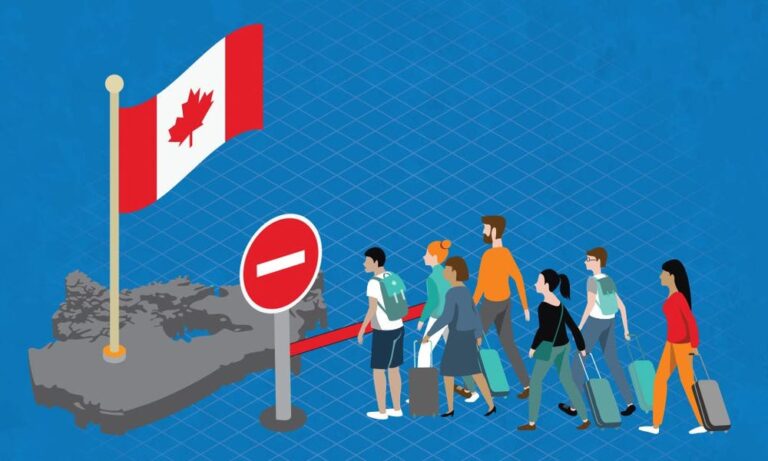How to Relocate to Canada Using the Student Route 2025
Relocating to Canada for education is an exciting journey. Canada is known for its excellent education system, welcoming communities, and beautiful landscapes. This guide will help you understand everything you need to know about moving to Canada using the student route in 2025. We’ll cover the education system, how to apply for a study permit, and what to do when you arrive.
Why Choose Canada for Your Studies?
1. High-Quality Education
Canada has some of the best schools in the world. Canadian universities and colleges offer a wide range of programs that can help you build a successful career. Degrees from Canadian institutions are recognized internationally, giving you an advantage in the job market.
2. Diverse Culture
Canada is a multicultural country. You will meet people from all over the world. This diversity makes it easier for international students to feel at home. You can learn about different cultures, languages, and traditions, which enriches your experience.
3. Safe Environment
Canada is known for being a safe and peaceful country. The crime rates are low, and people are friendly. This makes it a great place for students to live and study without worrying about their safety.
4. Work Opportunities After Studies
One of the best things about studying in Canada is the chance to work after graduation. With a Post-Graduation Work Permit (PGWP), you can work in Canada for up to three years after completing your studies. This experience can help you build a career and gain valuable skills.
5. Pathway to Permanent Residency
Studying in Canada can open doors to permanent residency. After you complete your studies and gain work experience, you may be eligible to apply for permanent residency. This is a big advantage for many international students.
The Canadian Education System
Understanding the Canadian education system is important for your journey. Here’s a breakdown of the levels of education in Canada.
1. Elementary Education
Elementary education in Canada usually starts at age 6 and continues until age 12. During these years, children learn basic subjects such as math, science, English, and social studies.
2. Secondary Education
After elementary school, students enter secondary education. This typically runs from ages 12 to 18. Students complete their high school diploma during this time. They learn more advanced subjects and may also take courses related to their future career interests.
3. Post-Secondary Education
After high school, students can choose to pursue post-secondary education. This includes:
- Universities: Offer bachelor’s, master’s, and doctoral degrees. They focus on academic and professional programs.
- Colleges: Provide diplomas and certificates, emphasizing practical skills and training.
- Technical Institutes: Specialize in specific fields like technology and healthcare.
Types of Institutions in Canada
- Universities
- Offer undergraduate (bachelor’s) and graduate (master’s and doctoral) degrees.
- Examples: University of Toronto, McGill University, University of British Columbia.
- Colleges
- Provide diploma and certificate programs.
- Focus on hands-on training and skills.
- Examples: George Brown College, Humber College.
- Technical Institutes
- Specialize in vocational training for specific careers.
- Offer shorter programs that focus on practical skills.
- Community Colleges
- Offer affordable education with a variety of programs.
- Can help you gain skills for the job market quickly.
- Online Institutions
- Many universities offer online courses.
- Flexible options for students who prefer to study from home.
Canadian Academic Calendar
The academic year in Canada generally follows two main schedules:
- Fall Term: Starts in September and runs until December. This is when most programs begin.
- Winter Term: Begins in January and ends in April. Some programs may have a winter intake.
- Summer Term: Runs from May to August. Many institutions offer courses during this time for students to catch up or get ahead.
How to Apply for a Study Permit
To study in Canada, you need a study permit. Here’s how to apply for one.
1. Choose a Designated Learning Institution (DLI)
Before applying for a study permit, you must be accepted by a Designated Learning Institution (DLI). A DLI is a school that the Canadian government recognizes.
Popular DLIs
- University of Toronto
- McGill University
- University of British Columbia
- University of Alberta
2. Apply for Admission
Once you have chosen a DLI, follow these steps to apply:
- Check Requirements: Each school has its own admission requirements. Make sure to read them carefully.
- Prepare Documents: You will usually need:
- Academic transcripts (grades from your previous schools)
- Letters of recommendation (from teachers or employers)
- A statement of purpose (explaining why you want to study in Canada)
- Proof of English or French proficiency (like IELTS or TOEFL scores)
- Submit Application: Most schools allow you to apply online. Follow the instructions on their website.
3. Receive Your Acceptance Letter
Once you apply, the school will review your application. If you are accepted, you will receive an acceptance letter. This letter is very important for your study permit application.
Applying for Your Study Permit
1. Gather Required Documents
To apply for a study permit, you will need the following:
- Acceptance Letter: From a DLI.
- Proof of Identity: A valid passport and photographs.
- Proof of Funds: Show that you can support yourself during your studies. This can include bank statements or scholarship letters.
- Letter of Explanation: Optional, but can help explain your intentions for studying in Canada.
2. Complete the Application
You can apply online or by paper. Here’s how:
- Create an Account: Go to the Immigration, Refugees, and Citizenship Canada (IRCC) website and create an account.
- Fill Out the Application Form: Complete the study permit application form (IMM 5709).
- Pay the Application Fee: The fee is usually around CAD 150.
- Submit Biometrics: Depending on your country, you may need to provide biometrics (fingerprints and a photo).
3. Wait for Processing
After you submit your application, it will be processed. The processing time can vary based on your country. You can check the IRCC website for current processing times.
Preparing for Your Move to Canada
Once your study permit is approved, it’s time to prepare for your move. Here are some important steps to take:
1. Find Accommodation
Finding a place to live is essential. You have several options:
- On-Campus Housing: Many universities offer dormitories for students. This can be a convenient option.
- Off-Campus Housing: You can rent an apartment or share housing with other students. Websites like Kijiji and Craigslist can help you find available places.
2. Health Insurance
Health insurance is very important while studying in Canada. Some provinces provide health care for international students. Check with your institution about health insurance options. You may need to purchase private insurance if your province does not offer coverage.
3. Open a Canadian Bank Account
Opening a bank account in Canada will help you manage your money. Bring important documents, such as your acceptance letter and identification. Choose a bank that offers services for students.
4. Prepare for Canadian Weather
Canada has a diverse climate, depending on the region. Be prepared for cold winters, especially in places like Toronto and Montreal. Pack warm clothing such as jackets, boots, and hats.
Arriving in Canada
1. Customs and Immigration
When you arrive in Canada, you will go through customs. Be sure to have the following documents ready:
- Your passport
- Your acceptance letter
- Your study permit approval letter (if applicable)
2. Settle In
Once you arrive, take time to settle in:
- Explore Your City: Familiarize yourself with the area, including public transportation, grocery stores, and parks.
- Connect with Other Students: Join student groups or clubs to meet people and make friends. This will help you feel more at home.
Working in Canada While Studying
1. On-Campus Work
As an international student, you can work on campus without needing a work permit. This is a great way to earn some extra money and gain experience in your field.
2. Off-Campus Work
You may also work off-campus if your study permit allows it. During academic sessions, you can work up to 20 hours per week. During breaks, you can work full-time.
Post-Graduation Work Permit (PGWP)
After you complete your studies, you may be eligible for a Post-Graduation Work Permit (PGWP). This permit allows you to work in Canada for up to three years, depending on the length of your program.
Eligibility Requirements for PGWP
To qualify for a PGWP, you must:
- Have completed a program of study at a DLI.
- Apply within 180 days of receiving your final marks.
- Have studied full-time for at least eight months.
Pathway to Permanent Residency
Studying in Canada can lead to permanent residency. Here are some options:
1. Express Entry System
If you meet certain criteria, you can apply through the Express Entry system. This system uses a points-based approach to evaluate candidates. Factors that can earn you points include:
- Your age
- Education level
- Work experience
- Language skills
2. Provincial Nominee Program (PNP)
Some provinces have programs that allow international graduates to apply for permanent residency. Check the specific province’s requirements to see if you qualify.
Frequently Asked Questions (FAQs)
1. How much does it cost to study in Canada?
Tuition fees vary depending on the institution and program. On average, expect to pay between CAD 7,000 and CAD 29,000 per year.
2. Can I bring my family with me?
Yes, you can bring your spouse or common-law partner and children. They can apply for open work permits or study permits.
3. What is the minimum age to study in Canada?
There is no minimum age to study in Canada. However, the age of majority varies by province, typically between 18 and 19 years.
4. Can I extend my study permit?
Yes, you can apply for an extension if you continue your studies. Be sure to apply before your current permit expires.
5. What happens if I fail my courses?
If you do not maintain satisfactory academic standing, your study permit may be affected. Make sure to meet your institution’s requirements to avoid issues.
Tips for a Successful Experience in Canada
1. Stay Organized
Keep track of important dates, such as application deadlines and class schedules. Use a planner or digital calendar to help you stay organized.
2. Build a Support Network
Connect with other students and locals. Join clubs, attend events, and participate in community activities. This will help you make friends and feel more at home.
3. Take Advantage of Resources
Most schools offer resources for international students, such as counseling services, academic support, and career advice. Don’t hesitate to use these resources.
4. Learn About Canadian Culture
Understanding Canadian customs and culture can help you adjust. Participate in local traditions and festivals to learn more about your new home.
5. Manage Your Finances Wisely
Create a budget to manage your expenses. Consider using student discounts whenever possible to save money.






